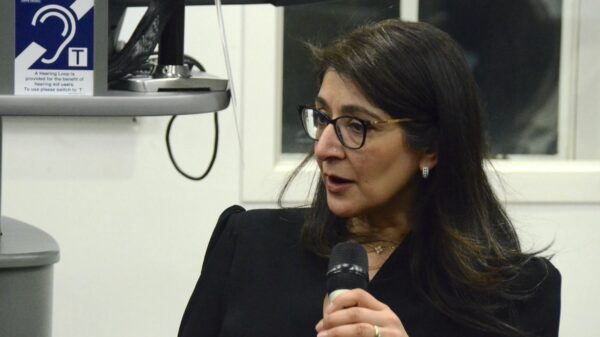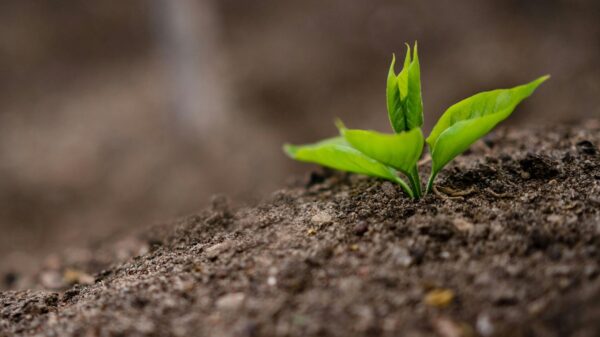Political Economy Review writer Kiara Parisius de Lima on the important role that women and indigenous groups play in deciding Brazil’s future.
Three weeks ago, over 123 million Brazilians voted in the first round of what has been called the most important presidential election of the world’s fourth-largest democracy. Though voters were given twelve options for their vote – including a null vote – it was no surprise that the two frontrunners were current president Jair Bolsonaro and former president Luiz Inácio Lula da Silva, known mononymously as Lula. The two candidates couldn’t be more different and are at the centre of the country’s polarising political divide.
Far-right populist and former army captain Bolsonaro has been dubbed the ‘Trump of the tropics’. As the first president to be elected since Dilma Rousseff’s impeachment in 2016, he promised to return Brazil to stability after some tumultuous years, yet the past four years of his presidency have been marked by a gross mismanagement of the pandemic, a surge in fires in the Amazon rainforest and deadly police raids in Brazil’s most impoverished favelas.
Lula’s 2003 to 2010 presidency, in contrast, was characterised by its far-reaching welfare measures and social programs that curbed poverty in Brazil and increased access to health care and education. Born in a working-class family, Lula worked several manual labour jobs from the age of 12, yet he managed to leave the presidential office as one of the most popular politicians in the world. Nevertheless, his administration faced several corruption scandals, coming to a head when, in 2018, he was imprisoned on money laundering and corruption charges. The ruling was later reversed by the Supreme Court on grounds of a biased judge.
The results of Sunday’s election shocked many carefully optimistic Lula supporters, who believed Lula could take the win with an outright majority in the first round of elections. While Lula led with 48.4% of votes, Bolsonaro outperformed previous opinion polls, which had predicted 35% for the incumbent, with 43.2% of votes. The two are set to face off in a second round of elections on 30 October to determine the winner.
Polls have also shown that Bolsonaro is much less popular amongst female voters as compared to male voters. While 39% of male voters had planned on voting for Bolsonaro, only 29% of female voters wanted to vote for the current president. In comparison, 43% of male voters and 46% of female voters had planned to vote for Lula. Undecided voters are twice more likely to be women than men. Reaching these voters could make or break the election for either candidate, provided that polls haven’t failed again in assessing Bolsonaro’s popularity.
Bolsonaro’s reputation amongst women is perhaps not surprising considering his history of misogynist statements. Most famously, a 2003 video published in 2014 shows Bolsonaro, at the time the Federal Deputy of Rio de Janeiro, telling congresswoman Maria do Rosario that he wouldn’t rape her because she “is not worthy of it”.
Yet it is in the best interest of either candidate to appeal to this undecided voter base. In a more recent TV interview, Bolsonaro pointed to increased land ownership among women during his presidency in an attempt to become more favourable amongst female voters in the run-up to the elections. He also remarked that of the 20 million families taking part in Auxílio Brasil, a social welfare programme, 25% of families were headed by women. This appears in stark contrast to some of the president’s other decisions during his term – for instance, his vetoing of an increase in Covid-19 aid for single mothers, as well as for the provision of free period products to low-income women.
Journalist Vera Magalhães, who was attacked verbally by Bolsonaro on national TV in August, told TIME that appealing to women’s issues would be going against his long-standing image. By trying to attract undecided female voters, Bolsonaro could deter his traditional male supporters.
His bold and inflammatory comments also extend beyond gender issues and intersect with other social problems in Brazil. In a display of misogynoir – a term coined by Black feminist Moya Bailey to describe misogyny directed at Black women – Bolsonaro claimed his sons would never fall in love with a Black woman, because they are “very well educated”.
Bolsonaro’s questionable policy decisions and harmful comments could not have gone unchallenged. Brazilian women have a longstanding tradition of organised protest and resistance that traces back to the 19th Century. Today, women in Brazil carry on this feminist legacy through various forms of in-person and online activism. The most famous and far-reaching of these is the #EleNão (#NotHim) movement.
Ahead of the 2018 elections, Black feminist activist Ludimilla Teixeira organised the largest women-led protest in Brazilian history. Across the country, over 2.5 million women hit the streets, urging voters to vote against Bolsonaro. The movement also became viral online, with Teixeira’s Facebook group amassing over 4 million female followers in the matter of a few days and the hashtag used widely across various social media platforms. Despite Bolsonaro’s victory in the elections, the #EleNão movement continues to represent a sentiment of resistance against the incumbent amongst women, and particularly Black women.
In Brazil, political resistance can turn dangerous. A poll by the Brazilian Forum on Public Security revealed that almost 70% of Brazilians feared being attacked for their political opinions. Before the 2018 elections, Marielle Franco, a Black and queer councilwoman for Rio de Janeiro, was murdered. She was known for associating with women’s, Black and favela movements and fiercely opposing incessant police brutality. Instead of being intimidated, Black women organised once again in solidarity and protest. Following Franco’s murder and in large part led by the Mulheres Negras Decidem (Black Women Decide) collective, 1,000 Black women ran for federal office in the elections that year – 60% more than in the previous elections.
Similarly to Black women, Indigenous women in Brazil have resisted Bolsonaro’s presidency, both through political action and through activism. In large part because of the president’s exploitation of the Amazon rainforest, more Indigenous leaders than ever ran for federal office in these elections. Of the 60 Indigenous candidates, 31 are women.
Female Indigenous voices were also central at International Women’s Day marches in Brazil on March 8. Critiques included the federal government’s undermining of legislation which protects Indigenous lands and the defunding of FUNAI, the governmental protection agency for Indigenous people. Similar issues were addressed at the Indigenous Women’s Marches in September, which were organised by the Articulation of Indigenous People of Brazil (APIB) – the leading organisation for Indigenous Brazilian. The marches highlighted a combination of Indigenous, women’s and environmental issues. This is not incidental.
A 2019 study in the Proceedings of the National Academy of Sciences of the United States of America reveals a direct correlation between agriculture-led deforestation and inequality in Latin America. Given that Brazil is one of the most unequal societies in the world, this suggests that addressing inequality will be key in maintaining the Amazon Rainforest. An important part of this may be the empowerment of Indigenous groups.
Unfortunately, the opposite is currently taking place in Brazil. Although Indigenous people are at the forefront of protecting the rainforest from illegal mining and logging, they are doing so at the risk of their lives; Brazil is currently one of the most dangerous countries to be an environmental activist.
A government report on violence against Indigenous people reveals that in 2019, 113 Indigenous people were murdered, a majority of them in relation to their environmental activism. With the Amazon rainforest quickly approaching an irreversible tipping point in its degradation, the next years of policymaking are fundamental in protecting both the rainforest and Indigenous people in Brazil.
The past four years of Bolsonaro’s administration may make Lula the obvious alternative for many Brazilian voters, but the former president’s stances and approaches to many of these issues are not ideal either. Lula has refused to commit to gender parity in his cabinet and has plans to continue exploration for new oil deposits and invest in new oil-refinery infrastructure.
Nevertheless, he also promised more representation for women, Black people and Indigenous people in his new administration, and pledged to scale up Brazil’s clean energy production. During his presidency, policies addressing the needs of mothers, women’s access to welfare and healthcare, and the availability of childcare were enacted, resulting in an increase of women’s workforce participation.
While the results of the elections on October 30 are still undecided, it is clear that much is at stake – for Brazil’s 109 million women and girls, for its Black and Indigenous communities, and for the world’s lungs. As both candidates try to appeal to an undecided voter base in the final weeks before the election, it becomes apparent that female voters may have the last word.
This article is written in partnership with The Political Economy Review. You can find the full version here.
Kiara Parisius de Lima
















